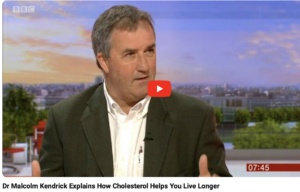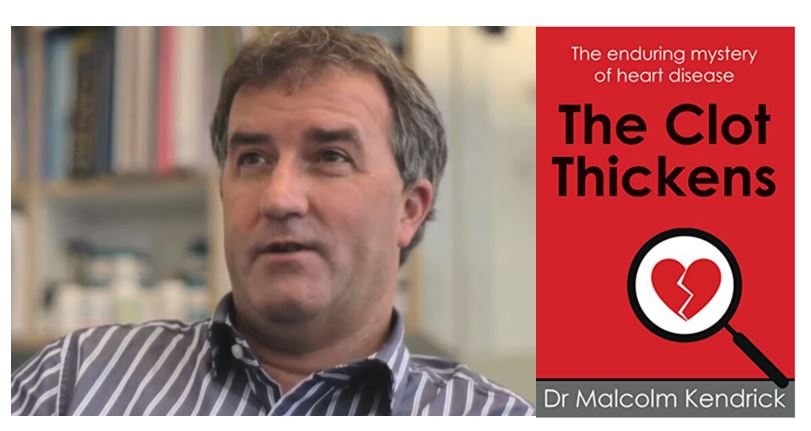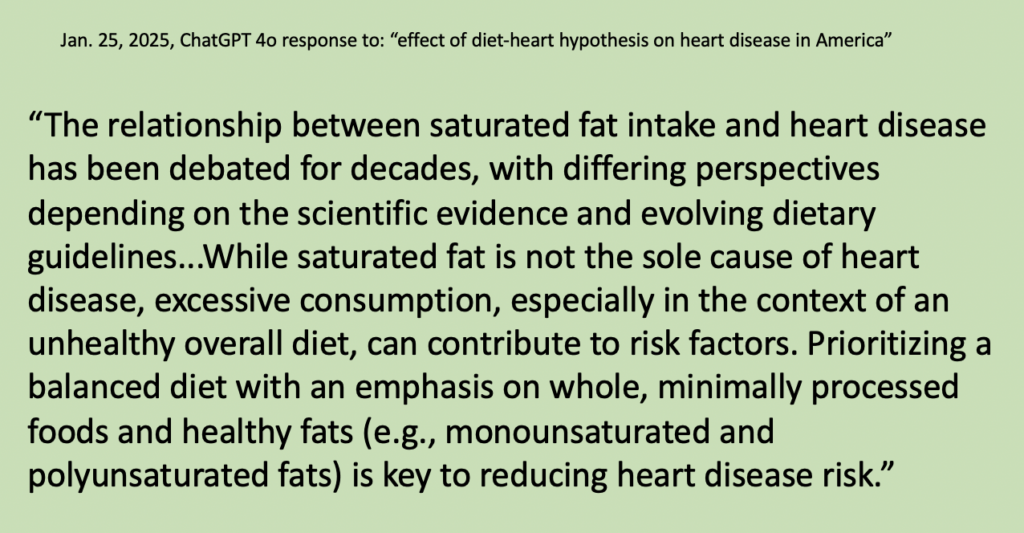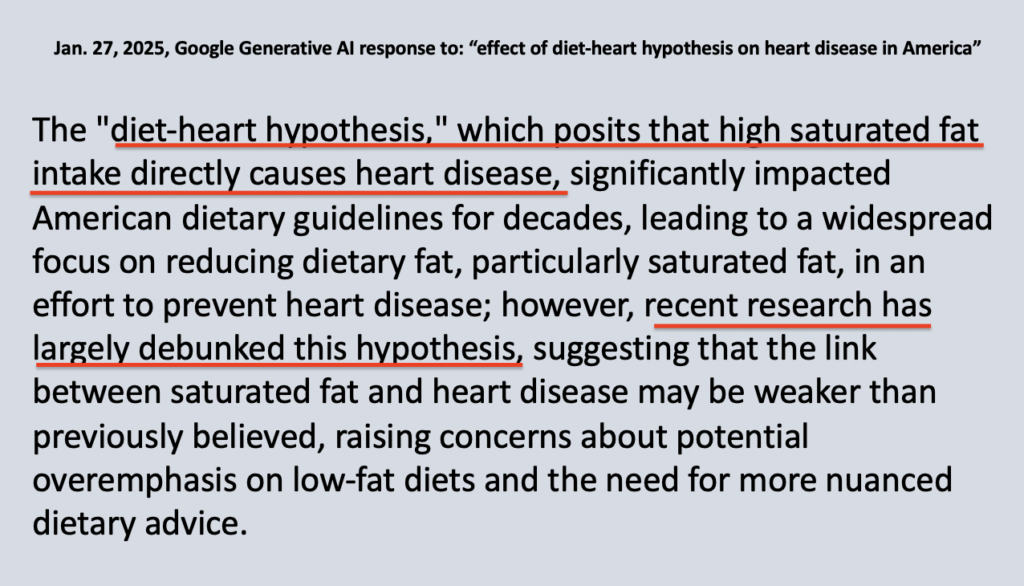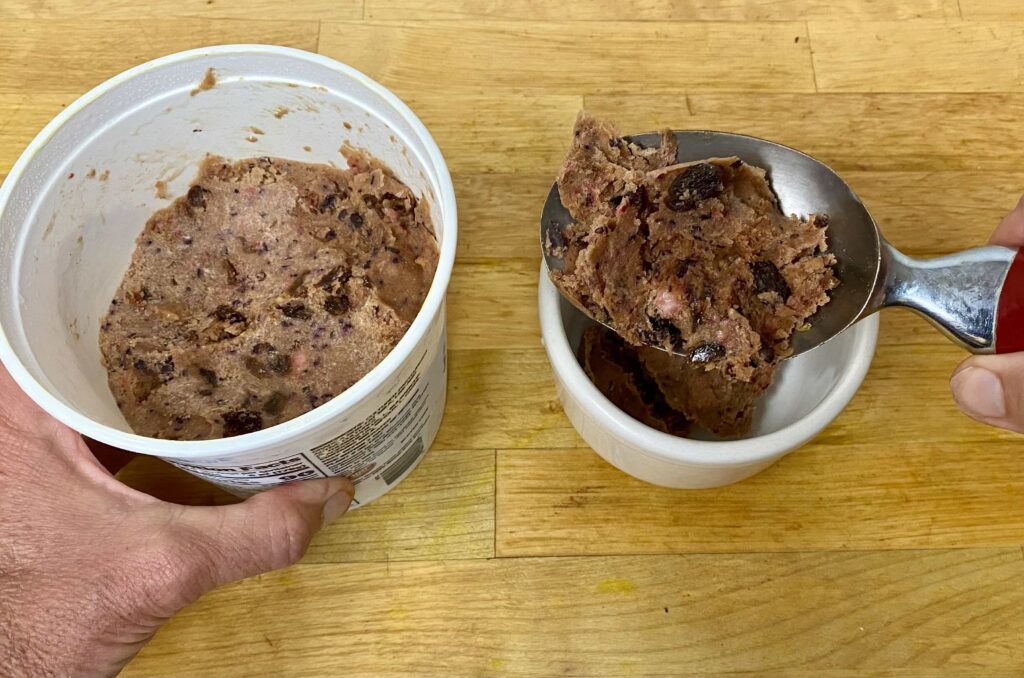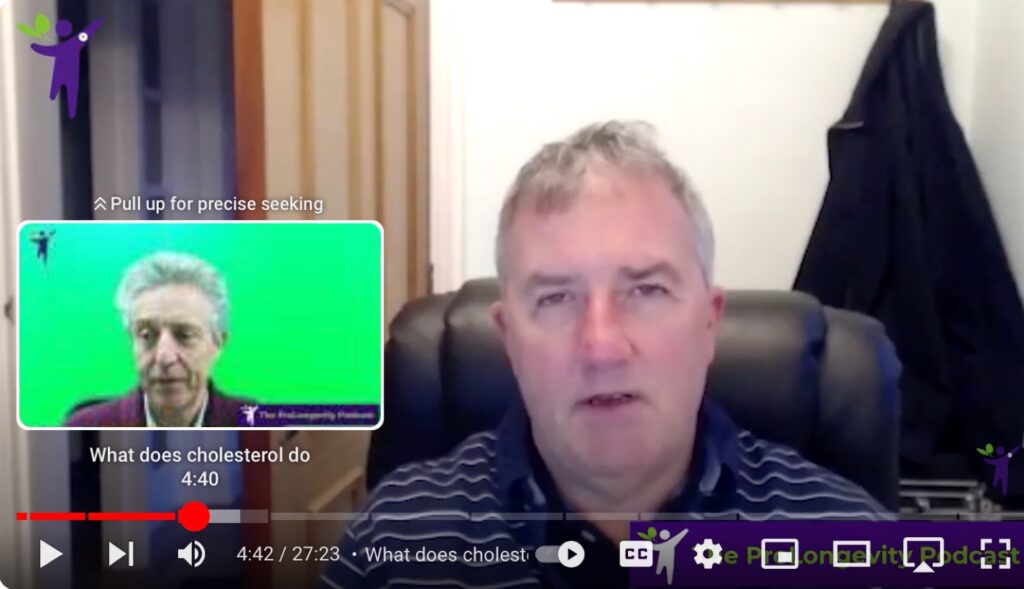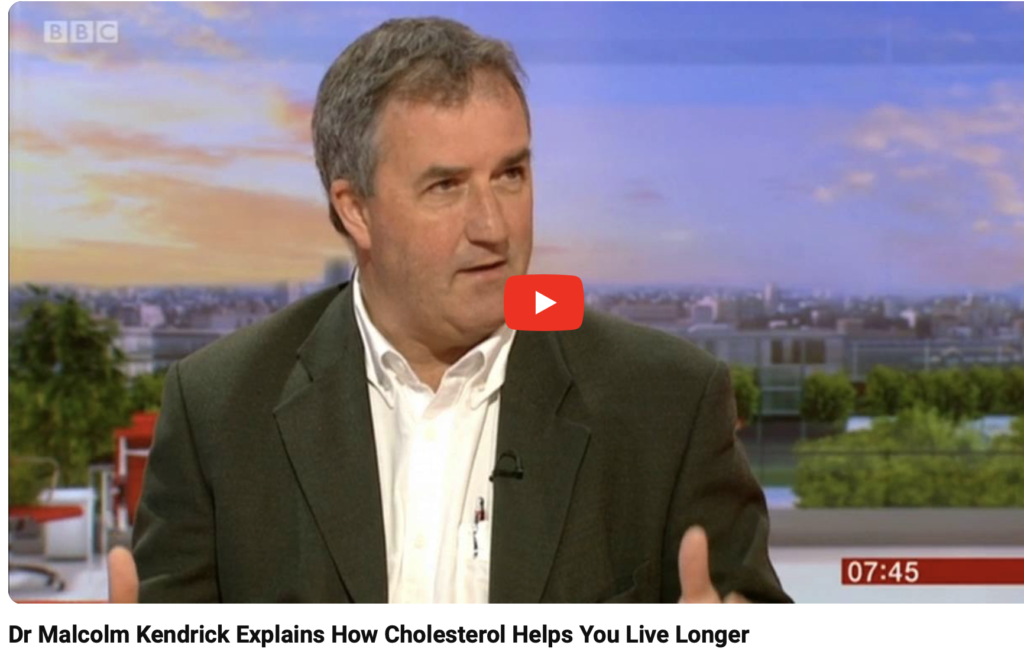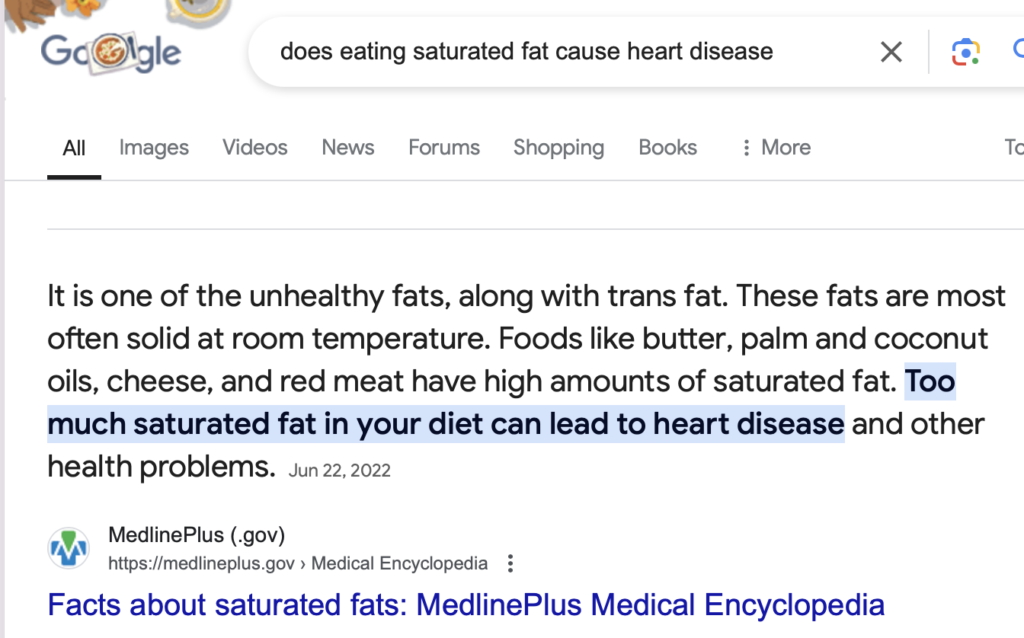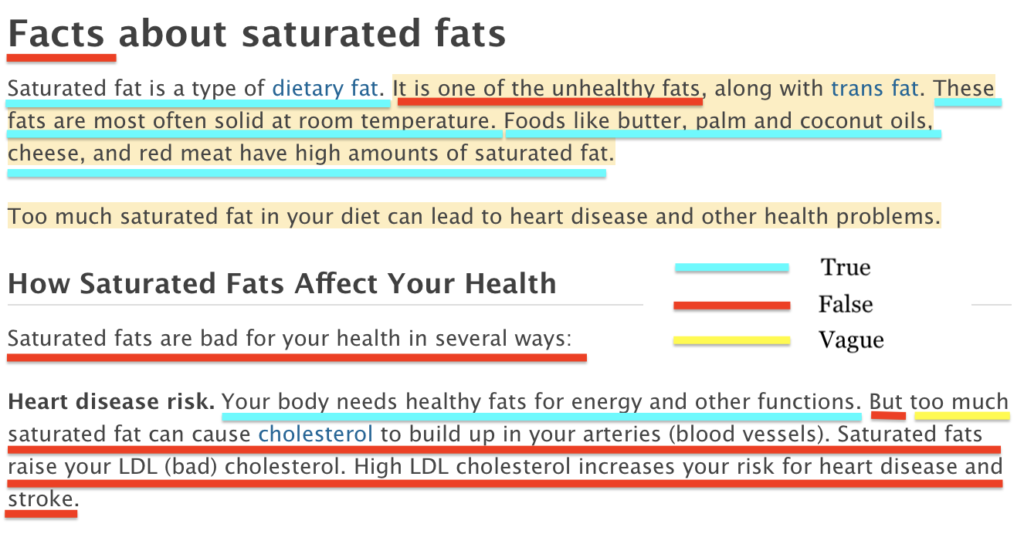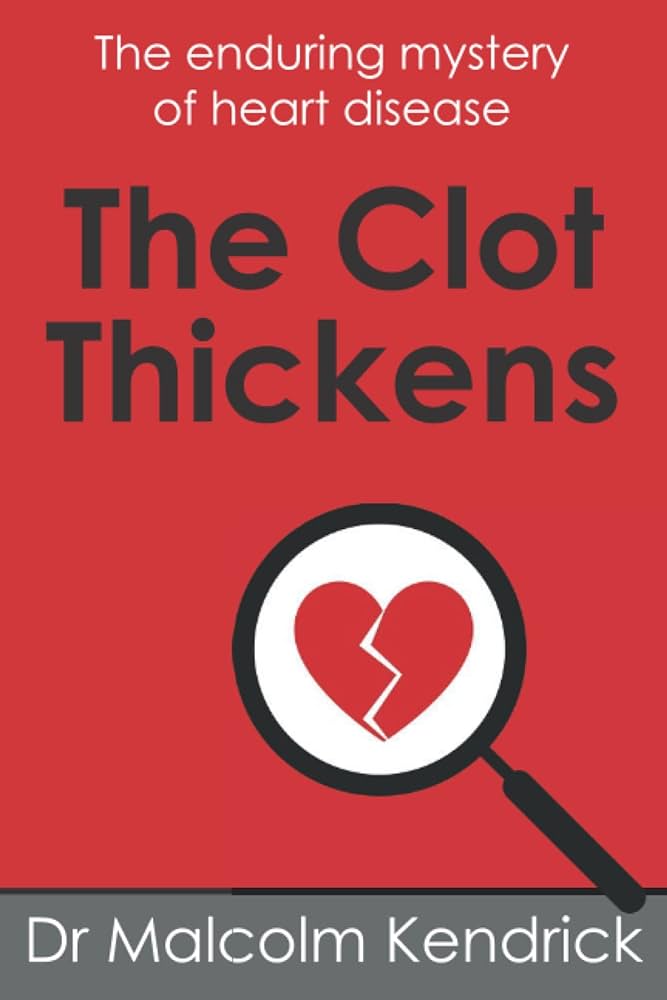Common sense isn’t common until you’re introduced to it. After that you’re on the hook.
But first a warning: just be sure to verify the source of that “common sense” before you believe it, internalize it and put it to practice.
Here’s a prime example regarding food and health. I just Googled “does eating saturated fat cause heart disease”, and this excerpt from MedlinePlus popped up as the first hit.
As stated directly on their website, “MedlinePlus is a service of the National Library of Medicine (NLM), the world’s largest medical library, which is part of the National Institutes of Health (NIH)”.
The only problem with the above excerpt from my Google search, especially considering its influential source and page title, “Facts about saturated fats“, is that it is largely incorrect. Saturated fats are not unhealthy fats. The only stumbling block for me are the vague words “too much” in the highlighted blue section, which then give the word “can” some validity because too much of any food (or anything) can indeed lead to negative consequences. (More about that in the “takeaway” bullets below.)
Here’s what I got when I clicked to read the full page.
Everything underlined in light turquoise is undeniably true. The lines underlined in red, however, are not true based on scientific evidence. Those lines instead support the completely scientifically debunked “diet-heart disease” hypothesis that holds that eating saturated fat can lead to raised cholesterol levels in the bloodstream, which then can lead to arterial wall cholesterol plaque buildup and eventual arterial blood flow obstruction resulting in heart attack, stroke and other associated life-threatening problems.
The reason I’m convinced that the diet-heart hypothesis is wrong – although I completely and incorrectly believed it as common sense for decades – is that I’ve read, listened to and agree with the breadth and depth of evidence laid out in The Clot Thickens by Dr. Malcolm Kendrick, which is a must-read for anyone interested in the causes and prevention of the leading cause of human death, heart disease, or, more specifically, cardiovascular disease/coronary heart disease (CVD/CHD).
Dr. Kendrick is a Scottish general practitioner, who has spent decades rigorously studying CVD/CHD from an evidence-based, biochemical and physiological point of view. Here are some significant takeaways and quotes from The Clot Thickens that overwhelmingly debunk the diet-heart “eating fat leads to heart disease” hypothesis:
- Most importantly, CVD/CHD is not caused by a single problem but is instead a process problem. (Dr. Kendrick adopted his “process” approach through insight gained from one of his professional mentors, Dr. Paul Rosch, Clinical Professor of Medicine at New York Medical College and Chair of The American Institute of Stress.)
- “No-one actually has any such thing as a cholesterol level…because cholesterol cannot float free in the blood, as it is not water soluble, and therefore cannot be blood soluble. (This is due to) a somewhat inconvenient chemical fact: cholesterol has to be transported (through the bloodstream around the body in microscopic) spheres called lipoproteins (lipid + protein = lipoprotein), which are about the size of a virus.”
- “Heart disease has nothing to do with eating saturated fat“. That means eating a diet rich in saturated fat and cholesterol does not cause cardiovascular disease/coronary heart disease (CVD/CHD). (My personal note: along with what I wrote about “too much” above, Dr. Kendrick’s entirely appropriate statement does not mean you can eat as much saturated fat and cholesterol as you want. Fats (more precisely identified as “fatty acids”) are high in calories, and those fats not used to maintain cell membrane integrity and support energy metabolism are stored in fat cells. Excessive fat storage leads to weight gain. Significant weight gain can then contribute to compounding problems that lead to CVD/CHD.)
- The root cause of CVD/CHD is clotting (or thrombogenesis), which is why Dr. Kendrick’s book is titled The Clot Thickens. Initial arterial clotting is a multi-staged complex process and is the result of chemical, biochemical, physical and/or particulate matter damage first of the glycocalyx, the slippery blood flow-facing protective lining of arteries, and then subsequent damage to the single-cell-thick endothelial wall. (As defined concisely by US NIH, “Endothelial cells line the entire vascular system, from the heart to the smallest capillary, and control the passage of materials—and the transit of white blood cells—into and out of the bloodstream.”
- Let’s cut the above bullet into two parts:
- In the same way that your skin responds to a cut or abrasion by clotting and scabbing over until the skin heals beneath it, your body responds to damage to your endothelial cells, which cannot heal themselves, by initiating the above-mentioned clotting process and then absorbing and dissolving that clot deeper in the arterial wall to complete the healing – unless there are continued added injuries in the same location, which then allow the clot to grow ever-larger and restrict blood flow. A significant component of that multi-phase clotting process involves red blood cells (RBC’s) attaching themselves to a developing clot and thereby fortifying that clot – and here is where cholesterol comes in. RBC cell membranes contain about 40% cholesterol – and that is not unusually high, as all animal/human cell membranes contain on the order of 20-40% cholesterol. Most significantly, though there are other clotting components that also contain cholesterol in their structure (as noted above, cholesterol cannot flow freely in the bloodstream), the presence of red blood cells with their high cholesterol content is likely the reason many studying CVD/CHD incorrectly believed that cholesterol itself was the primary cause of arterial plaque formation.
- To expand on the first bullet above, arterial clotting that leads to CVD/CHD is not a single “cause and effect” problem but a process problem, and that process is triggered by at least one or a combination of the following factors – and more (as discussed in the book):
- Smoking and exposure to airborne micro-particulate contaminants
- Diabetes
- Raised blood pressure
- Chronic kidney disease
- Rheumatoid arthritis
- Severe mental illness
- Systemic lupus erythematosus (SLE)
- Atypical antipsychotic medication
- Steroid medication
- History of migraines
If you’ve gotten this far, please then look more closely at the caption under the YouTube screenshot at the top of this page regarding cholesterol and lifespan. If that caption and the short video interview you can see by clicking this link or the same screenshot picture, that pits Dr. Kendrick against a heart-diet hypothesis adherent, resonate at all with you, please read or listen to The Clot Thickens – or do both as I did. You’ll be greatly enlightened with extraordinary life-changing food and health common sense – and will certainly get what I mean by the last eight words in the paragraph below (and then do read the final NOTE at the bottom of the page, which surely got my attention).
Most of all, thank you, Dr. Kendrick for your integrity, inquisitive persistence and gutsy toughness blazing a trail focused on reducing CVD/CHD through common sense thinking and practice – all in the face of misguided and daunting academic, government and corporate opposition.
NOTE: Just before punching off this blog now, which took me days to write to get it right, I Googled the same query I started with at the top of this page, “does eating saturated fat cause heart disease”, and this time got a very different top hit titled A short history of saturated fat: the making and unmaking of a scientific consensus, first published online in December 2022 and posted by the same NIH National Library of Medicine that posted Facts about saturated fats noted above. What I find extraordinarily interesting is that the second article, “A short history of saturated fat”, is diametrically opposed to the first “Facts about saturated fats” article and provides a rigorous argument against the diet-heart hypothesis very similar to what Dr. Kendrick provides in his The Clot Thickens. I’m very glad to see that and now see hope regarding the daunting opposition I mention above, though, at the same, I certainly wonder how making that identical query within the timeframe of a few days resulted in a such a completely different response to my first Google query.
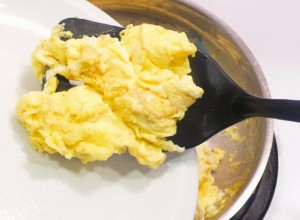

 May 28th, 2025
May 28th, 2025 


